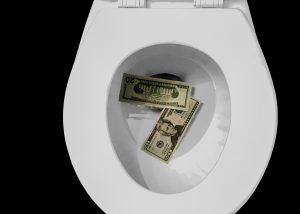Advocates say states need to step in and prevent collectors from taking consumers’ stimulus checks.
Oregon Governor Kate Brown is protecting residents’ pandemic stimulus checks from being seized by debt collectors after signing an executive order prohibiting collection via garnishment. Neither Congress nor the Treasury Department has taken steps to ensure the checks are exempt from seizure at the federal level. Under the CARES Act, which rolled out in response to COVID-19, the checks are protected from being collected by most federal and state debt collectors, excluding child support. However, private creditors like those seeking reimbursement for medical bills, credit card bills, or private student loans, can still collect unless states say otherwise.
“Many Oregonians, through no fault of their own, are struggling to pay their bills, their rent, or even buy essentials like groceries and prescription drugs,” Brown said. “These recovery checks were meant to provide relief, not reward debt collection agencies for preying on Oregonians who have lost their livelihoods.”
The governors of Illinois and Washington state also signed executive orders to protect stimulus checks from garnishment. “That stimulus check should help to pay for the necessities – food, rent, that type of thing,” said Washington Attorney General Bob Ferguson. “It should not be garnished to pay for medical bills. That would not be right.”

Twenty-five attorneys general also wrote a letter to U.S. Treasury Secretary Steven Mnuchin calling for him to protect checks from private debt collection. It appears, however, the department has thus far chosen to allow this practice, and the only successes have been at the state level.
“The folks who owe people money, who are disproportionately poor, are the ones at greatest risk [of garnishment]. Ironically, those are the same folks who are most in need of the checks and may be most in need of assistance to provide their families shelter, food and medicine,” Brent Adams of the Woodstock Institute, a Chicago-based economic development agency, said.
Consumer advocates believe allowing private companies to do with the funds as they please is an outrage. In Illinois, advocates are asking Governor J.B. Pritzker to issue an order that would force debt collectors like payday lenders to manually, rather than automatically, obtain payment from debtors without late fees. And, they’re pushing for similar measures in other states as well.
“At a time when people are desperate to buy food, the idea that anybody would grab [the $1,200 payments], let alone the banks they trust with their money, is appalling,” said Lauren Saunders, associate director with the National Consumer Law Center. “Some states have not responded to the law. Given that we’re not going to get any federal clarity any time soon, we are still very much urging states to exercise whatever authority they can.” She added, “This is especially egregious right now. But it happens on a regular basis that money that people need for food is taken from them.”
Ohio Attorney General’s Yost echoed her statement, saying, “The stimulus checks were intended to be used during an emergency – to put food on the table, keep the lights on and a roof over our heads. It wasn’t meant to pay off an old bill.”
Sources:
Private debt collectors can seize stimulus checks. Some states are trying to stop them.
Will your stimulus check get seized? It could come down to where you live


Join the conversation!